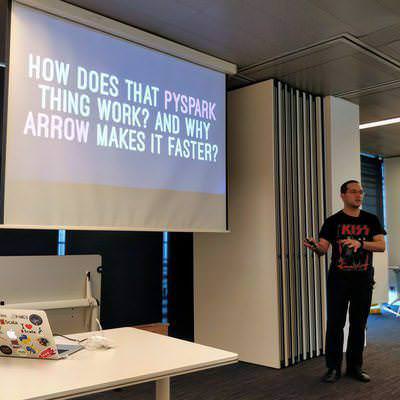Software/data engineering, languages, writing. Expect a similar wide range in the future as well. You can check all weekly readings by checking the tag here.
The year has ended, what has been going on?
This is how I handle the dreaded GTD (Getting Things Done) weekly review when using Things 3.
This week I have been working a lot with a relatively large dataset on a Spark shell. It was a graph with 1 billion nodes and 2 billion edges that I wanted to analyse with GraphFrames (the successor of GraphX on Spark).
Even though I have been a long time user of oh-my-zsh on zsh (moved from plain bash to zsh like 10 years ago), I have been minimal on my use of its theme capabilities. I have used the default theme forever: robbyrussell. But recently I was showing my friend @craftycoder the tweaks I have on my system (fzf, autojump, etc) and he showed me this theme, agnoster.

